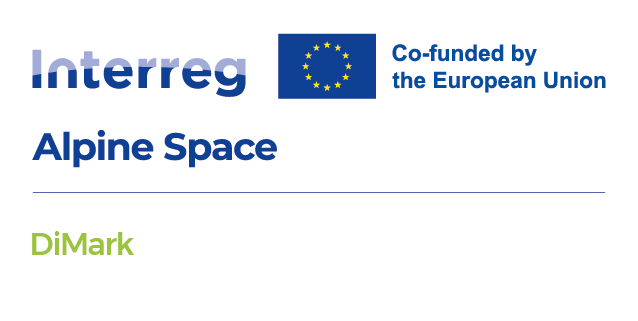Project description
Alpine lakes are confronted with various anthropogenic challenges, such as tourist pressure and nutrient enrichment (eutrophication), which will worsen in the future due to climate change. Frequent cyanobacteria and algae blooms, which are mainly caused by eutrophication, make the waters unsuitable for drinking water, leisure activities and industry. This is because these blooms are associated with a decline in biodiversity and a lack of oxygen and pose a threat to the lake ecosystem. In particular, the toxins often produced by cyanobacteria (cyanotoxins) pose a health risk to humans and animals. The DiMark project uses satellite data for remote monitoring of lakes in order to better track changes.
The aim of the project is to improve water management using novel ecosystem-based approaches to adapt to climate change and minimise risk. Two innovative, ready-to-use solutions will be developed as part of the project:
- an online visualisation tool with maps of the Alpine region for monitoring and comparing water status based on key water quality indicators
- a model for the risk prevention of cyanobacterial and algal blooms, which enables sustainable management of lakes while minimising the health risk.
The solutions will be developed in a joint development process involving science, politics, small and medium-sized enterprises, NGOs and citizens.
The innovative aspect of the DiMark project is the linking of water quality indicators with satellite data. Transnational cooperation is particularly important as the status of water bodies depends on water catchment areas that extend across several countries (including Alpine border lakes).
Project details
Project title: Transnational Network for Linking Digital Earth Observation to Freshwater Markers for Better Understanding of Water-connected Climate Change Adaptation and Risk Prevention in Alpine Region
Project acronym: DiMark
Project management: National Institute of Biology, Slovenia
Project management AGES: Magdalena Purker, MSc.
Project partners: Slovenian Environment Agency, Slovenia, University of Innsbruck, Austria; Edmund Mach Foundation, Italy; Regional Agency for Environmental Protection and Prevention of Veneto, Italy; National Research Council, Italy; University of Konstanz, Germany; French National Research Institute for Agriculture, Food and Environment, France; E-institute, institute for comprehensive development solutions, Slovenia; Swiss Federal Institute of Aquatic Science and Technology, Switzerland
Funding: The project is co-financed by the European Union as part of the Interreg Alpine Space programme
Project duration: 09.2024 - 08.2027
Last updated: 14.10.2025
automatically translated
